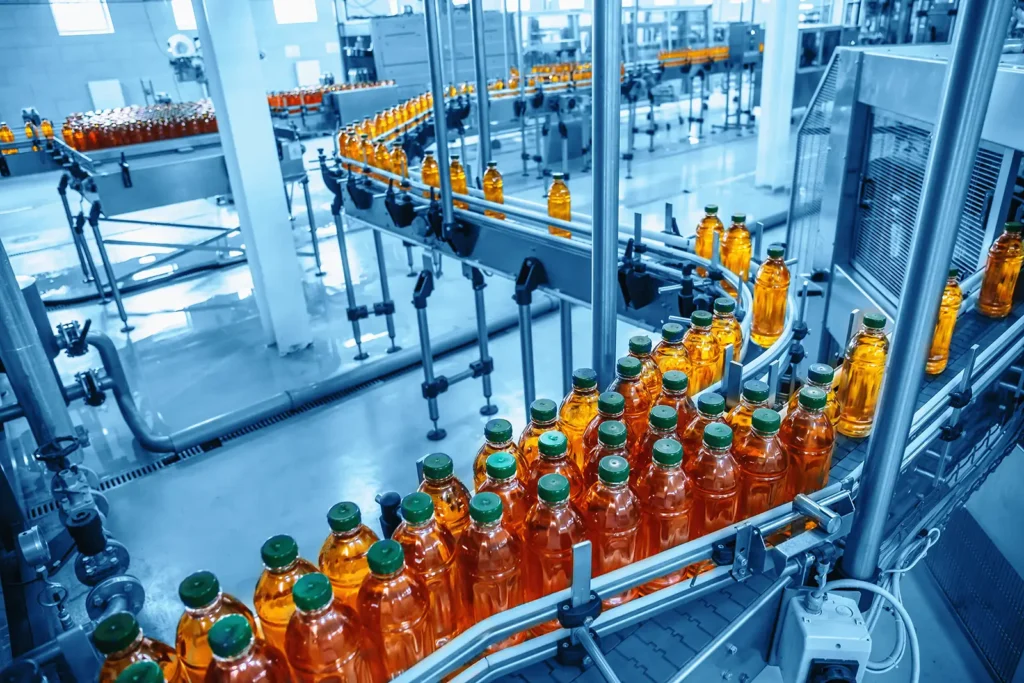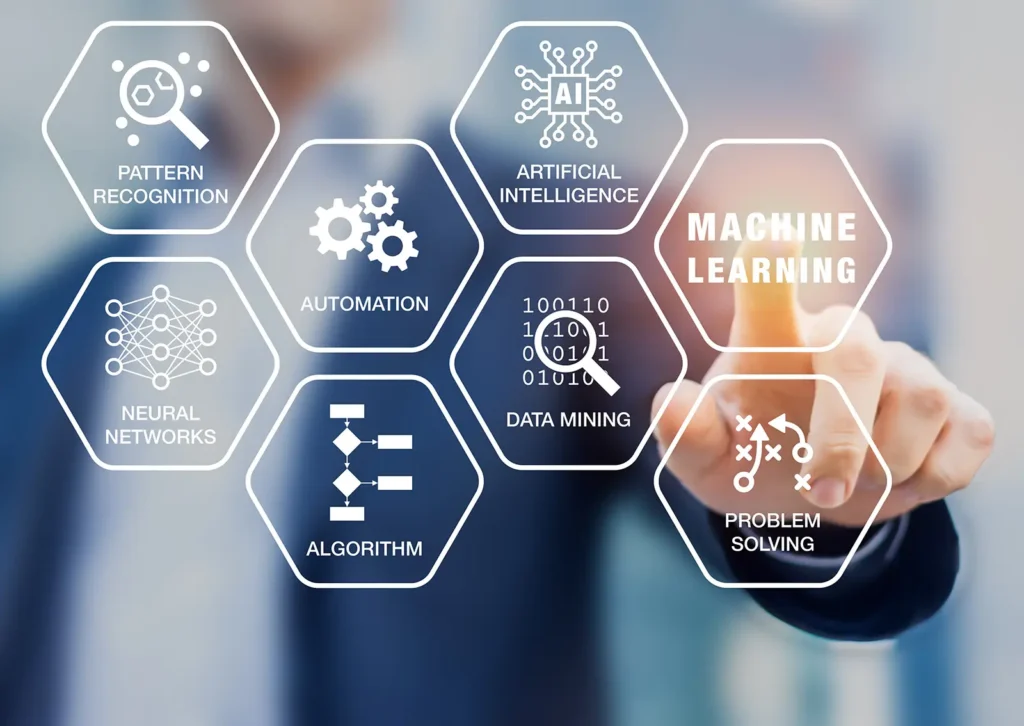Solutions

Your Digital Transformation begins Here
Learn how industrial customers are unlocking the power AI with simple access to complex industrial data for maintenance, troubleshooting, root cause analysis, turnaround planning, and more
Overview of AI and machine learning in manufacturing
In the ever-evolving landscape of manufacturing, artificial intelligence (AI) and machine learning are revolutionizing the industry. From predictive maintenance to quality control, these advanced technologies are transforming traditional factories into smart plants. By harnessing the power of AI and machine learning, manufacturers can optimize processes, improve productivity, and reduce downtime. Stay ahead of the curve and learn more about the impact of AI and machine learning on the manufacturing industry.

Key Components
A comprehensive framework encompassing automation, predictive maintenance, quality control, supply chain optimization, and workforce upskilling, all powered by AI and machine learning to drive operational efficiency, reduce downtime, enhance product quality, and ensure sustainable growth in the industry.
Efficiency improvements through automation
Automation driven by AI and machine learning is enhancing efficiency in manufacturing processes. Tasks such as routine inspections, inventory management, and production scheduling can now be streamlined and optimized with minimal human intervention. Through the integration of smart technologies, manufacturers can achieve higher levels of accuracy and speed, ultimately leading to increased productivity and cost savings. By leveraging automation, companies are not only able to meet growing demands but also to adapt quickly to market changes.
Predictive maintenance and reducing downtime
In the realm of manufacturing, predictive maintenance powered by AI and machine learning is proving to be a game-changer. By analyzing data from sensors and machines in real-time, manufacturers can predict potential equipment failures before they occur, allowing for timely maintenance and minimizing costly downtime. This proactive approach not only enhances operational efficiency but also extends the lifespan of machinery, leading to significant cost savings in the long run.
Quality control and defect detection
Ensuring product quality is vital in manufacturing. AI and machine learning play a crucial role in enhancing quality control processes by identifying defects and anomalies in real-time. By leveraging advanced algorithms, manufacturers can detect defects early in the production process, leading to reduced waste and improved product quality. Stay tuned as we delve into how AI and machine learning are reshaping quality control strategies in manufacturing, elevating standards and driving customer satisfaction to new heights.
Supply chain optimization
Supply chain optimization is another key area in manufacturing that is being revolutionized by AI and machine learning technologies. These advanced tools enable manufacturers to forecast demand more accurately, streamline inventory management, and optimize logistics operations. By harnessing the power of data analytics and predictive algorithms, companies can improve efficiency, reduce costs, and enhance overall supply chain performance. Stay tuned as we explore how AI and machine learning are transforming supply chain management practices, enabling manufacturers to operate more competitively in today’s fast-paced global market. Get ready to discover the potential of these cutting-edge technologies in driving supply chain efficiency and agility.
Workforce implications and upskilling
As manufacturing processes become increasingly automated with the integration of AI and machine learning, the workforce dynamic is evolving. While these technologies bring efficiencies and cost savings, they also raise concerns about job displacement and the need for upskilling. Manufacturers must invest in training programs to equip employees with the necessary skills to work alongside these advanced systems. By fostering a culture of continuous learning and adaptation, companies can ensure their workforce remains competitive and relevant in the age of digital transformation.
Embracing the future of manufacturing
In conclusion, the integration of AI and machine learning in manufacturing is reshaping the industry, bringing both opportunities and challenges. As companies navigate this digital transformation, investing in employee upskilling is crucial to ensure a skilled workforce that can effectively collaborate with these advanced technologies. By embracing a culture of continuous learning and adaptation, manufacturers can position themselves for success in this new era. It is essential for companies to recognize the importance of investing in their employees to harness the full potential of AI and machine learning in manufacturing.
Smarter Manufacturing, Brighter Future
This slogan encapsulates the transformative power of AI and machine learning in manufacturing. It highlights how these technologies are turning traditional factories into smart plants, driving efficiency through automation, predictive maintenance, and supply chain optimization. “Smarter Manufacturing” emphasizes the shift towards data-driven, intelligent processes, while “Brighter Future” reflects the long-term benefits of enhanced productivity, cost savings, and sustainable growth. This phrase also underscores the importance of workforce upskilling, ensuring employees thrive in a collaborative future alongside advanced technologies.


